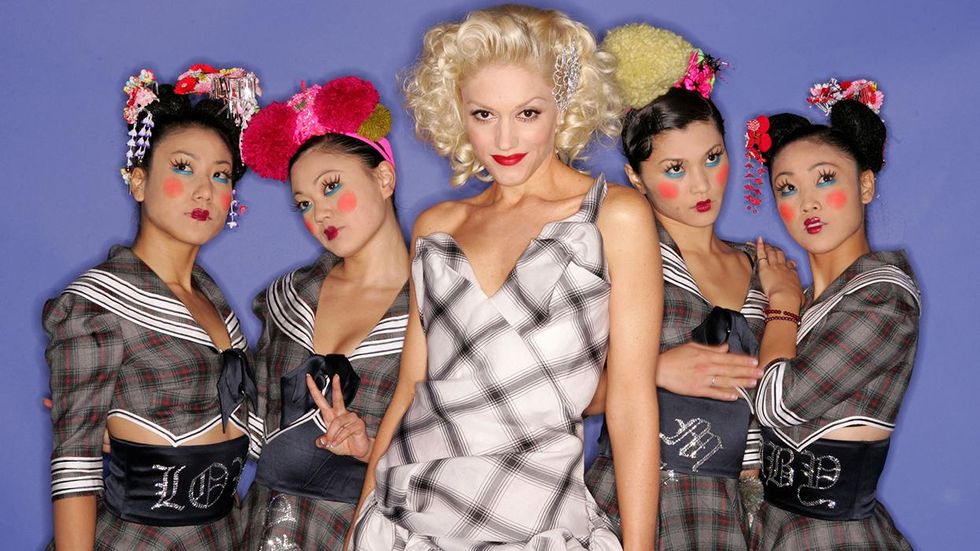Gwen Stefani is pushing back on longstanding accusations of cultural appropriation during her ‘Harajuku Girls’ era by declaring that she REALLY. LIKES. THE. CULTURE. In fact, she likes it so much, it technically makes her Japanese.
Um, so... yeah. I don’t think that’s how this all works.
The singer was recently interviewed by Asian American writer Jesa Marie Calaor, Senior editor for Allure, who asked Stefani about her new cosmetics collection GXVE Beauty, and its inclusion of lip colors that depart from her signature red. “We all have different color skin and all have different things that we wear different colors for,” Stefani told Calaor, who then turned the conversation to her past projects, specifically the Harajuku Lovers collection and conversations they spurred about cultural appropriation.
Then things took a strange turn. “She responded by telling me a story she’s shared with the press before about her father’s job at Yamaha, which had him traveling between their home in California and Japan for 18 years,” wrote Calaor.
Stefani explained that her (Italian American) father had a job at Yamaha for 18 years.
“That was my Japanese influence and that was a culture that was so rich with tradition, yet so futuristic [with] so much attention to art and detail and discipline and it was fascinating to me,” adding that he would replay stories of street performers he saw while visiting the country.
When Stefani finally visited Japan herself as an adult, she had a revelation, “I said, ‘My God, I’m Japanese and I didn’t know it’,” adding that she was a “super fan.”
“If [people are] going to criticize me for being a fan of something beautiful and sharing that, then I just think that doesn’t feel right ... I think it was a beautiful time of creativity… a time of the ping-pong match between Harajuku culture and American culture,” she said. “[It] should be okay to be inspired by other cultures because if we’re not allowed then that’s dividing people, right?”
But that’s not all: Stefani also shared that she identifies with the Hispanic and Latinx communities of her hometown, Anaheim, California. “The music, the way the girls wore their makeup, the clothes they wore, that was my identity,” she said. “Even though I’m an Italian American — Irish or whatever mutt that I am — that’s who I became because those were my people, right?”
In the excellent piece, which you should really read in its entirety, Calaor goes on to break down the — though not malicious — ways in which Stefani’s thinking is deeply problematic. She pointed to the fact that while Stefani has previously donated to Japanese charities during the recent increase in hate crimes against Asian Americans she has remained notably silent. “I envy anyone who can claim to be part of this vibrant, creative community but avoid the part of the narrative that can be painful or scary,” writes Calaor who generously adds, “Maybe she misspoke? Again and again?”
However, when she followed up with a rep for Stefani to get clarification, none would follow.
Related Articles Around the Web






























































































































